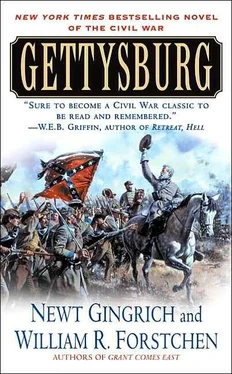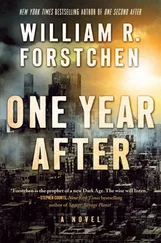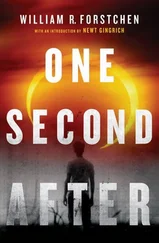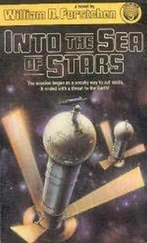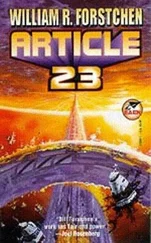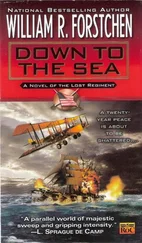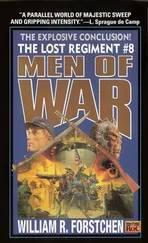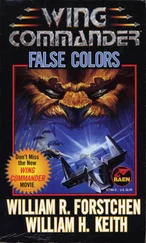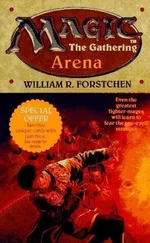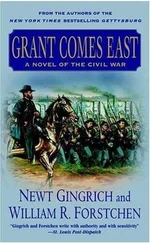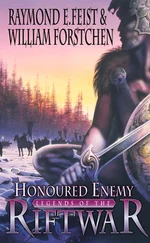William Forstchen - Gettysburg
Здесь есть возможность читать онлайн «William Forstchen - Gettysburg» весь текст электронной книги совершенно бесплатно (целиком полную версию без сокращений). В некоторых случаях можно слушать аудио, скачать через торрент в формате fb2 и присутствует краткое содержание. Жанр: Исторические приключения, на английском языке. Описание произведения, (предисловие) а так же отзывы посетителей доступны на портале библиотеки ЛибКат.
- Название:Gettysburg
- Автор:
- Жанр:
- Год:неизвестен
- ISBN:нет данных
- Рейтинг книги:5 / 5. Голосов: 1
-
Избранное:Добавить в избранное
- Отзывы:
-
Ваша оценка:
- 100
- 1
- 2
- 3
- 4
- 5
Gettysburg: краткое содержание, описание и аннотация
Предлагаем к чтению аннотацию, описание, краткое содержание или предисловие (зависит от того, что написал сам автор книги «Gettysburg»). Если вы не нашли необходимую информацию о книге — напишите в комментариях, мы постараемся отыскать её.
Gettysburg — читать онлайн бесплатно полную книгу (весь текст) целиком
Ниже представлен текст книги, разбитый по страницам. Система сохранения места последней прочитанной страницы, позволяет с удобством читать онлайн бесплатно книгу «Gettysburg», без необходимости каждый раз заново искать на чём Вы остановились. Поставьте закладку, и сможете в любой момент перейти на страницу, на которой закончили чтение.
Интервал:
Закладка:
Lee was flanking yet again, this time driving to cut off the one paved and useful road out of this nightmare, the road back to the north and east The rebels in front had barred the road back to Washington, and now the line of retreat back to York and Harrisburg was being shut as well.
Word came by courier to get the guns out. The army was retreating.
From atop the ridge he could already see the exodus, columns of troops swinging onto the road, some marching in good order, others staggering from exhaustion, especially the men of the Sixth Corps, who had marched up this road on July 2nd to Gettysburg, turned around the following day to force march all that distance back, been thrown into a doomed assault, and now turned about yet again with orders to make for Gettysburg or Hanover once more. It was too much for many to bear, and in the pouring rain, before they had moved even half a mile, the straggling was massive, hundreds, and then thousands of men breaking column to just collapse or wander off to the side of the road, dejected, ignoring the threats and pleas of their officers.
As the batteries slowly began to work their way out of the bastion, Henry kept a close watch on the Confederate lines on the south side of the creek. He could sense that they were ready, just waiting, but would not be so foolish as to try and push in.
No, that would come later, this evening, when the road back to Littlestown, the turnoff to Hanover and York was packed with tens of thousands of exhausted, demoralized, and frightened men… when hundreds of ambulances and thousands of walking wounded clogged the pike. Then Longstreet would hit, and then the panic would truly begin.
Dejected, alone, Henry mounted, pulling the brim of his hat down low against the rain, and rode up the slope and over the hill, leaving Union Mills behind.
Chapter Nineteen
On the night of July 4, 1863, the old Army of the Potomac died
The cause of death could be traced back across an illness of a year or more, incompetence of commanders, the tragically bitter politics that had divided officers against each other, but most of all the disintegration of belief in those who led them by the weary foot soldiers who had seen defeat once too often.
Never in the history of the Republic had there been such an army. An army of idealisms, of volunteers willing to lay down their lives for such abstract ideals, the belief in the Republic that had called them to arms, a visceral sense that there was a destiny to that Republic, the "city on the hill," as their puritan forefathers had called it, "the last best hope of mankind," as their current president defined it For some there were other causes as well, a belief in a dream as defined in the Declaration, that all men were, indeed, created equal.
And never had so good an army been so ill served. Man for man, they were the equal of any soldiers in history; that had been proven in the cornfields of Antietam, before the sunken road at Fredericksburg, on Seminary Ridge in the first day of the Gettysburg campaign, and in the final closing hours, on the blood-soaked banks of Pipe Greek.
Few in those battered regiments knew even a fragment of the details that had led them to such a tragic moment, but those few fragments of knowledge were enough. They had fought with a gallantry unparalleled in history… it was, yet again, their commanders who had failed them. Whether it was incompetence, self-serving interests, cowardice, or ignorance, the bitter sacrifice was one that created nothing except another defeat
Something within broke at that moment striking into the heart of each man, of every company and regiment brigade and division. They could still fight as individuals or small units; if any dared to try and reach out to touch their sacred blood-stained flags, they would indeed fight for that, for that they sail believed in. For their survival if cornered, they would still fight; but for the generals, that was gone, perhaps forever.
On the other side, it was a moment long dreamed of, a fulfillment of a sense that half victories, which had cost a hundred thousand men in the last twelve months, had now finally reached a climax, that on this Fourth of July all things were, indeed, still possible.
The Fifth Corps of the Army of the Potomac made its final stand in a torrential summer downpour on the outskirts of Littlestown, after being driven back four miles by the relentless onslaught of Pickett Hood, and the hard-bitten survivors of Johnson's division, the men of the old Stonewall Brigade.
In a way this final stand was indeed their finest hour, reminiscent of the Old Guard's stand at Waterloo. The backbone of the "old Fifth" was the division of regular troops, men who had been in the army since long before the war, when no self-respecting civilian would be caught dead in army blue, and now they were the ones dying in a final bid to hold the road open in die same way they had held the road after me debacle at First Manassas.
Sykes dismounted after losing three mounts in a row, stood with the division as it was battled back, yard by yard, in the pouring rain. If hit only in the center, they most certainly would have held; but whatever position they attempted to secure was soon outflanked, the rebel hosts threatening to completely encircle them. And yet, even then, they bought time, allowing several thousand to move up the road to safety.
Forced into Littlestown, Sykes finally made the fateful decision to turn the division north, back toward Gettysburg, to get what was left of his men out. To try and hold the town would have meant encirclement; to turn south would have meant encirclement as well.
He would be remembered for that moment, for when a panic-stricken officer galloped past, screaming that the army was destroyed, Sykes watched him go then turned to his men. "Yes, the army is gone," Sykes announced sadly, "but these regiments will always remain."
For the men of the Stonewall Brigade charging into Littlestown, it was like the memory of a springtime long ago, marching on relentlessly through the rain, sweeping forward to victory. Old Jack was gone, but now there was Lee, riding at the fore, urging them on, pointing the way, promising that but one more charge would crown them with victory undreamed of.
And so they stormed into Littlestown at the point of the bayonet, rifles all but useless as sheets of rain washed across the fields, churning the road to rivers of mud. The old Fifth broke apart, its bitter survivors turning back on the road toward Gettysburg, their morale broken by the certain knowledge that the rest of their army had just been defeated behind them at Union Mills and there was no sense of hope or rescue. A grim hopelessness set in among the men.
The back door had been sealed. It was six in the afternoon of July Fourth.
Hood, deployed across the Baltimore Road, now had to simply wait, for there was no other way back from Union Mills, except for narrow country lanes that were turning into rivers of mud. The one pike north, its pavement a sticky glue of crushed limestone, was sealed.
Their first take was the flood of broken survivors of the old Second and Twelfth Corps, coming back from the disaster, and the sight of Hood blocking that road sent them recoiling back again, word racing like an electric shock: 'The rebels are in Littlestown."
The men of the First Corps, so savagely mauled in the first day's battle, formed a final defense along the ridges north of Pipe Creek, still game and defiant, but the rest of the army now began to break apart
Sickles kept his head, both figuratively and literally, though his action, even as he undertook it would be the source of bitter debate and acrimony. With the largest intact command, he had waited for over two hours, listening as the sound of battle from the north, the flanking march by Lee pushing back Fifth Corps, gradually receded to the northeast Several of his officers begged for him to march to the sound of the guns, to flank Lee in turn, but he refused, announcing that the battle was already lost and his duty was to keep his units together to form the nucleus of a new Army of the Potomac.
Читать дальшеИнтервал:
Закладка:
Похожие книги на «Gettysburg»
Представляем Вашему вниманию похожие книги на «Gettysburg» списком для выбора. Мы отобрали схожую по названию и смыслу литературу в надежде предоставить читателям больше вариантов отыскать новые, интересные, ещё непрочитанные произведения.
Обсуждение, отзывы о книге «Gettysburg» и просто собственные мнения читателей. Оставьте ваши комментарии, напишите, что Вы думаете о произведении, его смысле или главных героях. Укажите что конкретно понравилось, а что нет, и почему Вы так считаете.
